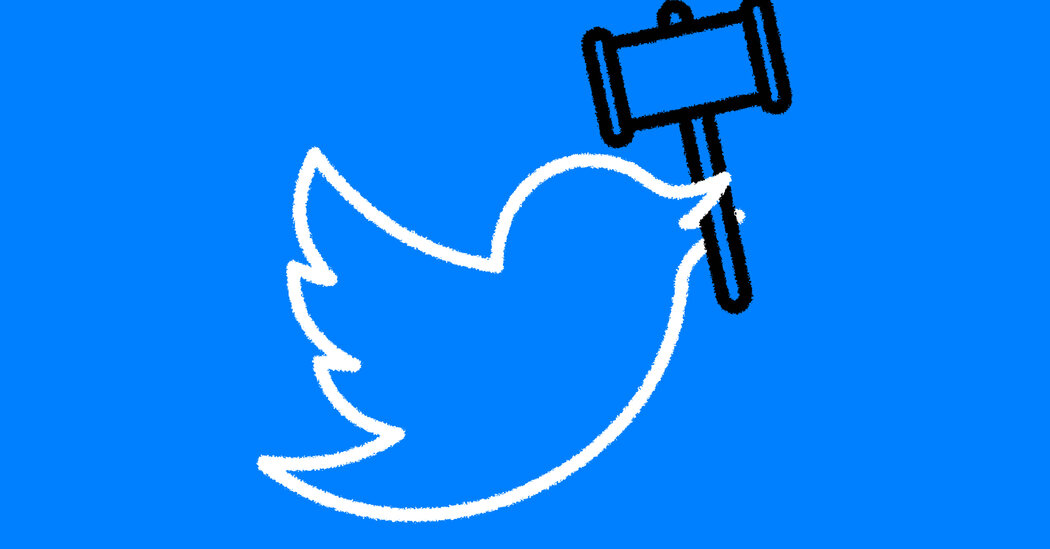How are you? (July 10-16)
Twitter is offensive
In Elon Musk’s saga with Twitter, the end of one chapter is just the beginning of another. Shortly after signaling that he was pulling out of his deal to buy the social media company, Mr. Musk was sued by Twitter. The company accused him of “knowingly, intentionally, intentionally and materially” violating their agreement. Mr. Musk’s lawyers said Friday that Twitter’s request for an expedited trial in September was unreasonable and asked for it to be postponed. When and if the case goes to trial, a judge in the Delaware’s Court of Chancery will decide whether Mr. Musk’s claims that Twitter withheld information about spam accounts on the site are valid. The two parties were also able to reach a settlement, in which Mr. Musk would pay compensation. Or, if his funding fails, he can get out of the deal by paying a $1 billion breakup fee. Another possibility is still that Mr. Musk’s threat to walk away will prompt Twitter to renegotiate with him, which could lead to him buying the company at a discount. Concerned shareholders will hear about the damage Mr. Musk has done when Twitter releases its second-quarter results this week.
Inflation accelerates
The rapidly rising prices picked up again last month, according to the latest report of the Consumer Price Index. The new inflation data showed that prices rose 9.1 percent in June from a year ago. Record gas prices were the main cause of the high inflation rate. Since then, they have fallen sharply – a factor that could lead to signs of moderation in the July report. President Biden focused on this possibility in his response to the new songs, calling them “obsolete.” But even so-called core inflation, which excludes volatile food and energy costs, was 5.9 percent higher than expected. And overall, there was little to be positive about in last week’s report, with experts saying it posed a major challenge for both the Federal Reserve and US consumers.
The fall of the euro
For the first time in 20 years, €1 was equal to $1, after the euro reached parity with the dollar last week. The currency has fallen since the beginning of the year amid trade disruptions, sanctions against Russian energy after Ukraine’s invasion of Ukraine and rising food and commodity prices in the eurozone. And as the euro declined, the dollar strengthened, supported by investors who have turned to the US currency as a safe haven during the global economic turmoil. It looks like these dynamics will continue even as the United States copes with its own economic tensions.
What’s next? (July 17-23)
Rising interest rates on the agenda
With the fall of the euro making the continent’s economic situation much more dire, the European Central Bank is expected to announce an interest rate hike on Thursday. It would be the first time the ECB has raised interest rates in more than a decade, taking a more aggressive path similar to that of many other central banks around the world. Last week, the Bank of Canada raised its rates by as much as 1 percentage point. The Federal Reserve is also heading for a significant rate hike as inflation continues at an alarming pace. Christopher Waller, a Fed governor, said he favored another three-quarter point change this month, but an even bigger increase, perhaps 1 point, is possible.
A critical quarter for Netflix
Netflix has already prepared shareholders this week for the financial overview for the second quarter. But that doesn’t mean the news will be any easier to swallow. In April, after announcing it had lost 200,000 subscribers, Netflix warned it would likely lose another two million over the next three months as it struggled to stay competitive among a myriad of streaming options. Since then, the company has made several rounds of layoffs, while its share price has fallen. As the streaming giant tries to recover, it plans to create a cheaper, ad-supported subscription tier, with Microsoft as a partner. But the move is no guarantee of calmer waters for the company.
The odds of a recession
The likelihood of an impending recession depends on who you ask. Talk to Wells Fargo’s chief economist and he’ll tell you that a 2023 recession “seems more likely than not.” Ask S&P Global Ratings, and it will say the probability of a deep downturn is actually a toss up. Last week, despite what some would view as clear warning signs, JPMorgan Chase and Morgan Stanley said there is no recession in sight yet. Despite the divergent outlook, the fact is that most people – analysts, economists and laymen alike – are thinking about it and looking for clues in indicators such as yield curves, inflation data, quarterly earnings and investor attitudes. And as the Fed tries to slow down the economy, fears that the country could find themselves in a serious slowdown will continue to mount.
What else?
Bank of America was fined $225 million by federal regulators for mishandling pandemic unemployment benefits. Amid travel chaos, Delta Air Lines flew an empty plane to London’s Heathrow Airport to collect stranded luggage and return it to the United States. And Heathrow said it would limit passenger numbers until the end of the summer because of staff shortages.

